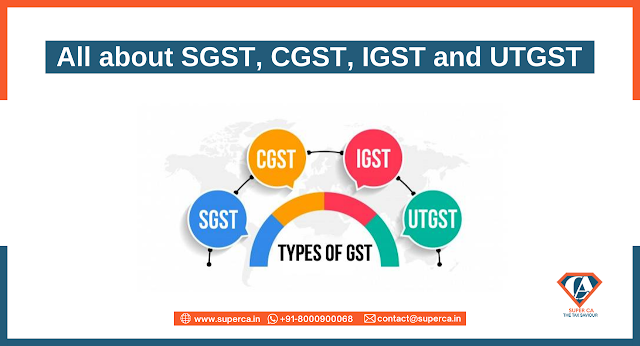Advantages of GST Registration for Small Businesses and Start-Ups
The implementation of Goods and Service Tax (GST) in India was a historical move, as it marked the beginning of a new era in India’s indirect tax structure. This multi-stage and destination-based tax framework has supplanted several indirect taxes in the country, such as VAT, service tax, and excise duty.
In the three years following the announcement of the “One nation one tax” regime, SMEs and start-ups have enjoyed the benefits. One of the most important benefits of the move is simplifying the taxation procedure by bringing all the indirect taxes under a single category and also bringing some uniformity across the nation.
In this article, we’ll discuss the various
advantages that GST gives to small businesses and start-ups on registration
About online GST registration
As per the GST rules, it is mandatory for a business/supplier that has a turnover of above Rs.40 lakhs (Rs 10 lakhs for special category states present in hill states and North-Eastern states) to register as a normal taxable entity through online GST Registration Process. In online GST registration, no manual intervention or physical paper submissions is required. The online process is as simple as it may sound. It is usually completed within 4-6 working days and the supplier is allotted a 15-digit GSTIN (GST identification number) and a certificate of registration by the GST department.
If the organizations fulfilling the eligibility criteria carries on business without registering to GST, it will be an offence under GST and heavy penalties will apply.
Advantages to Small Businesses and Start-Ups
➢ Ease of doing business
The procedure for online GST registration is centralized and also standardized. Under the GST regime, the business would no longer have to obtain multiple VAT registration as a single GST registration applies across India. Therefore, the procedure for obtaining online GST registration would also become standardized. Thereby improving the ease of starting a new business in India without any difficulties.
➢ Inter-state supplies without restrictions
No restrictions are there on interstate sales for casual taxable persons. Thus, the potential market for SMEs reaches the next level.
➢Simplified registration
GST has replaced various indirect taxes like Excise Duty, VAT, Services Tax, Sales Tax and so on. Now, the Business needs to get only one GST registration which comes as one of the biggest advantages because a lot of time and physical paperwork is saved as most of the uploads are done online and are digitally signed. A separate registration is needed for different states but the process remains the same which is done online and is verified and authenticated.
➢Eliminates the cascading effect of tax
GST bought all the indirect taxes under one roof. In simple words the cascading effect was Tax on Tax and to diminish this thing, the input tax credit or ITC was brought into light as a major benefit to businesses. All registered individuals can claim the Input tax credit on the purchase of goods & services & can utilize the same for payment of taxes due to the supply of goods or services.
➢ Lesser compliance
The government has reduced the complexity of tax filing for businesses to a great extent by combining various taxes into a single tax GST. Under the previous tax regime, businesses had to file multiple returns accorded with different indirect taxes – VAT, excise, and service tax. As GST is a unified and singular tax regime, the number of filings has come down, making it less hassle for entities to file a return.
➢ Legal recognition & Competitive advantage
Businesses with online GST registration are legally recognized as a supplier of goods or services which in turn helps in attracting more customers and growing business. Also, the Taxpayer will be legally authorized to collect tax from his customers and pass on the credit of the taxes paid on the goods or services supplied to the purchasers/ recipients.
➢ Cutting down Transportation and Logistics Cost
Before the implementation of GST, all state
governments had applied their own different tax structure when it came to
Octroi and CST applicability for interstate transportation of goods.
Now, since GST has taken over the Octroi and
CST along with varied other predominant tax requirements in different states,
the tax has been reduced significantly for the movement of goods & services
across multiple states resulting in reducing transportation and logistics
costs.
Final Thoughts
GST was implemented in India to alter the complicated indirect tax framework. India’s government rolled out this tax provision with the motive of “One Nation One Tax” to make the compliance procedure more transparent, seamless, and intuitive. Under GST, various small business and start-ups firms will flourish strongly and be able to avoid unnecessary tax liabilities.





Comments
Post a Comment